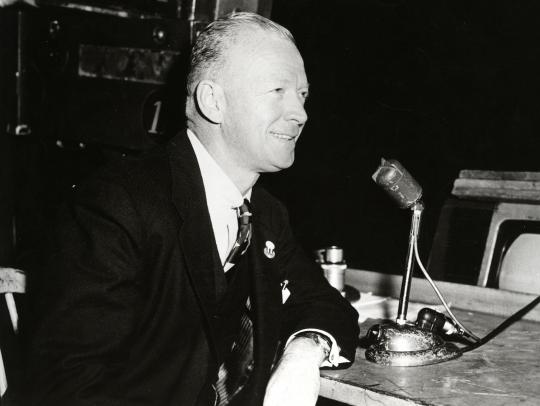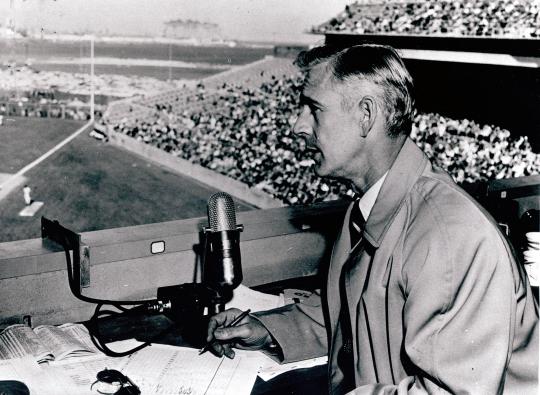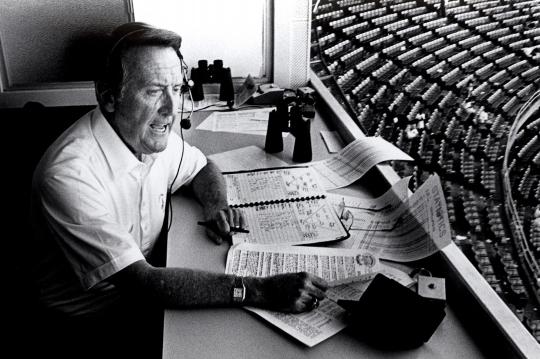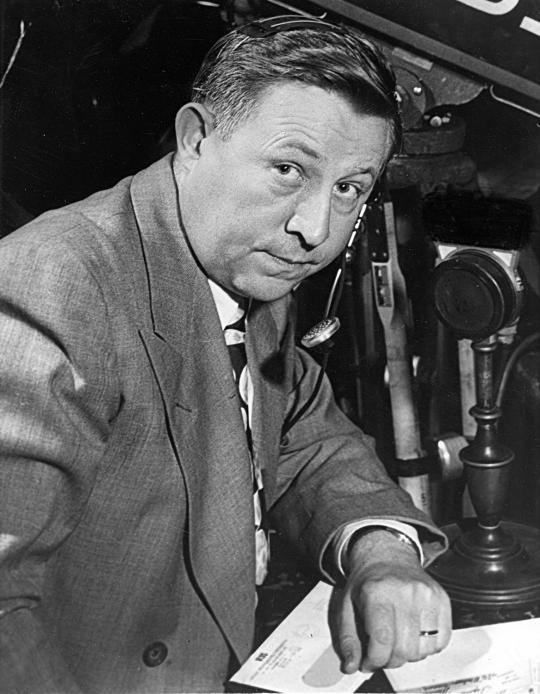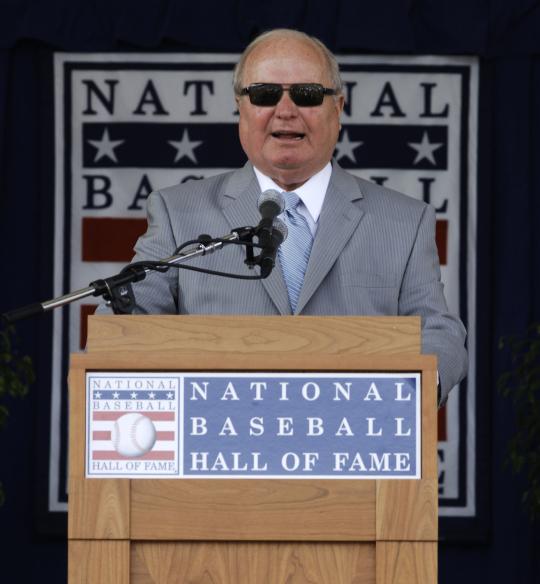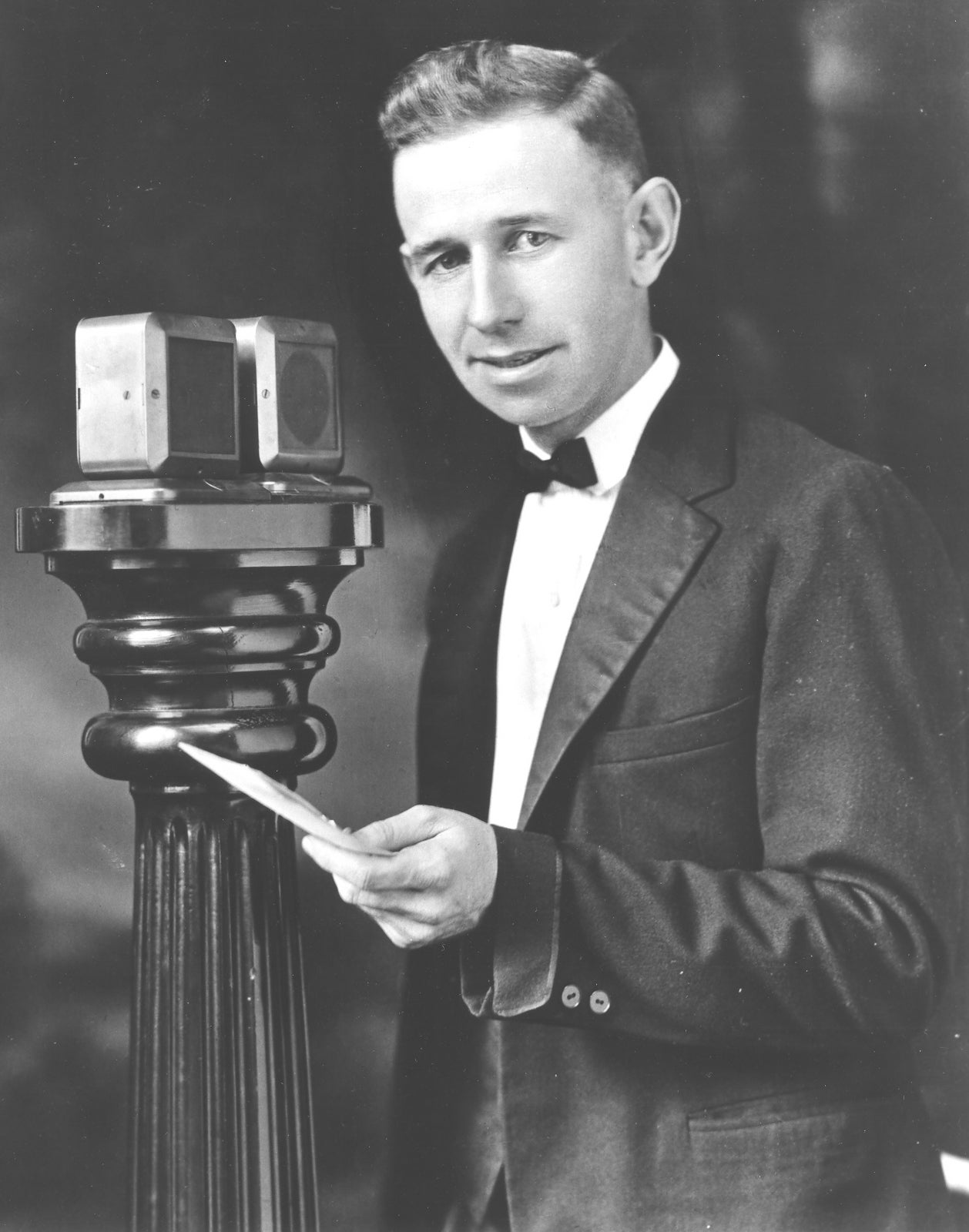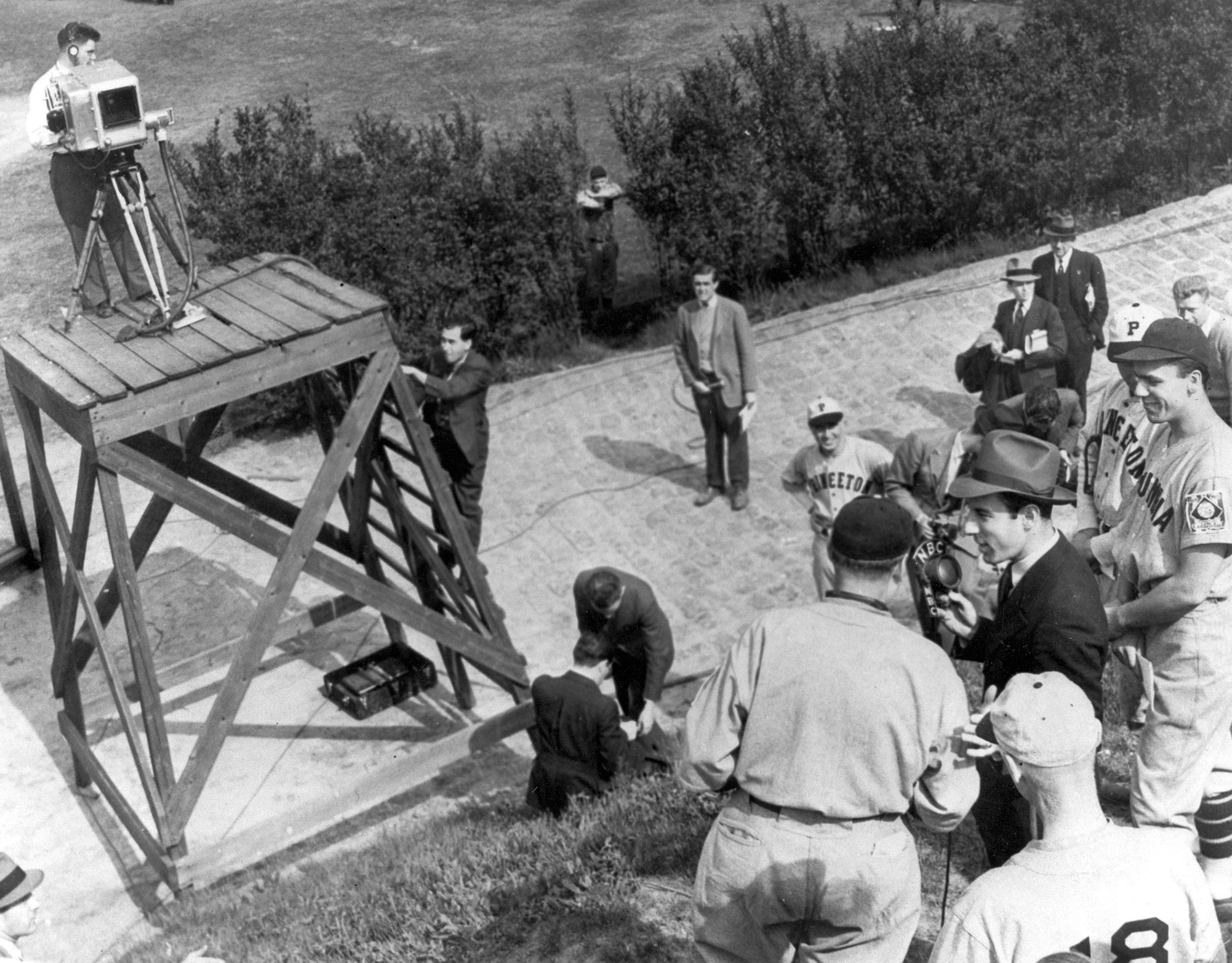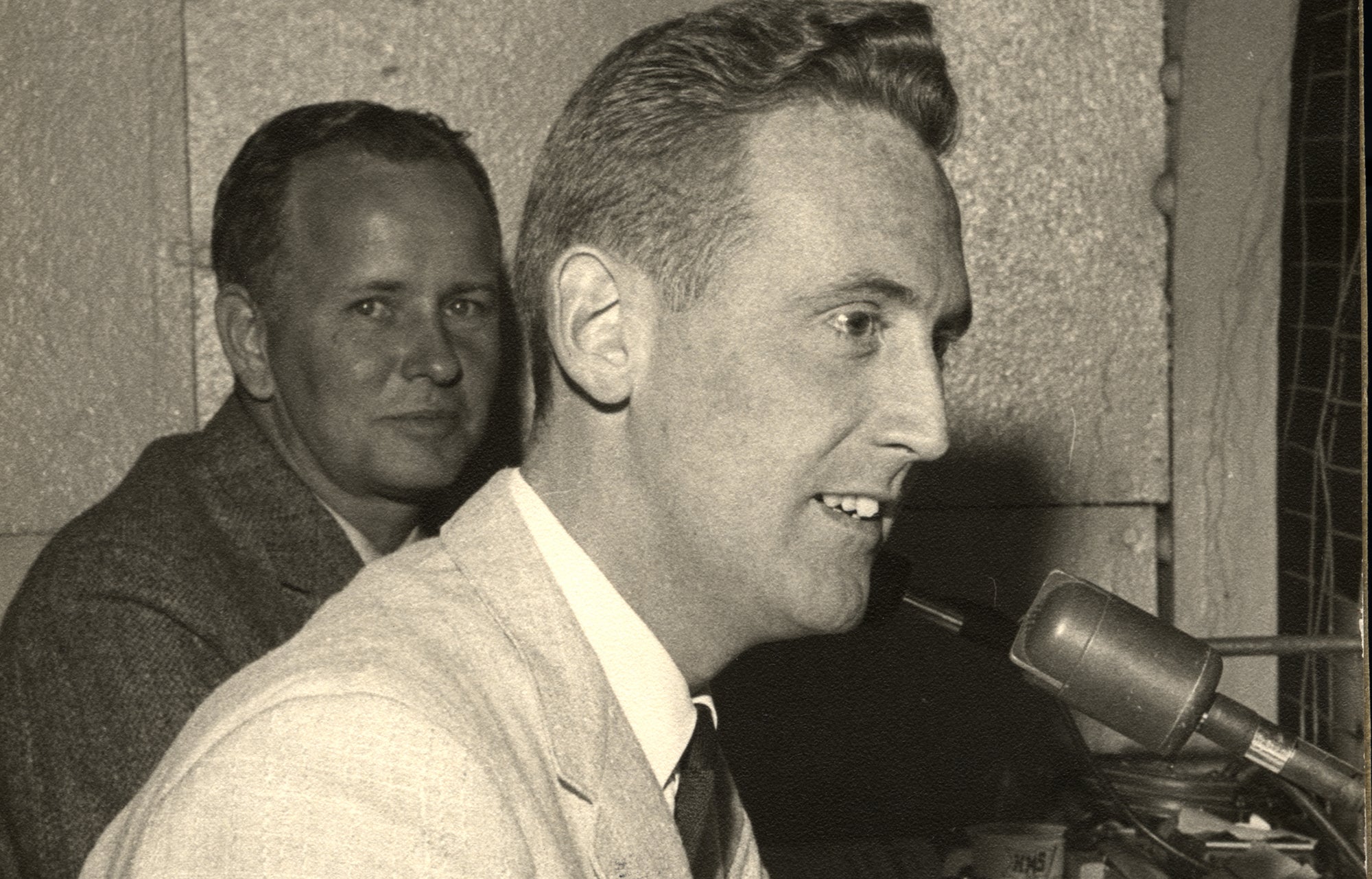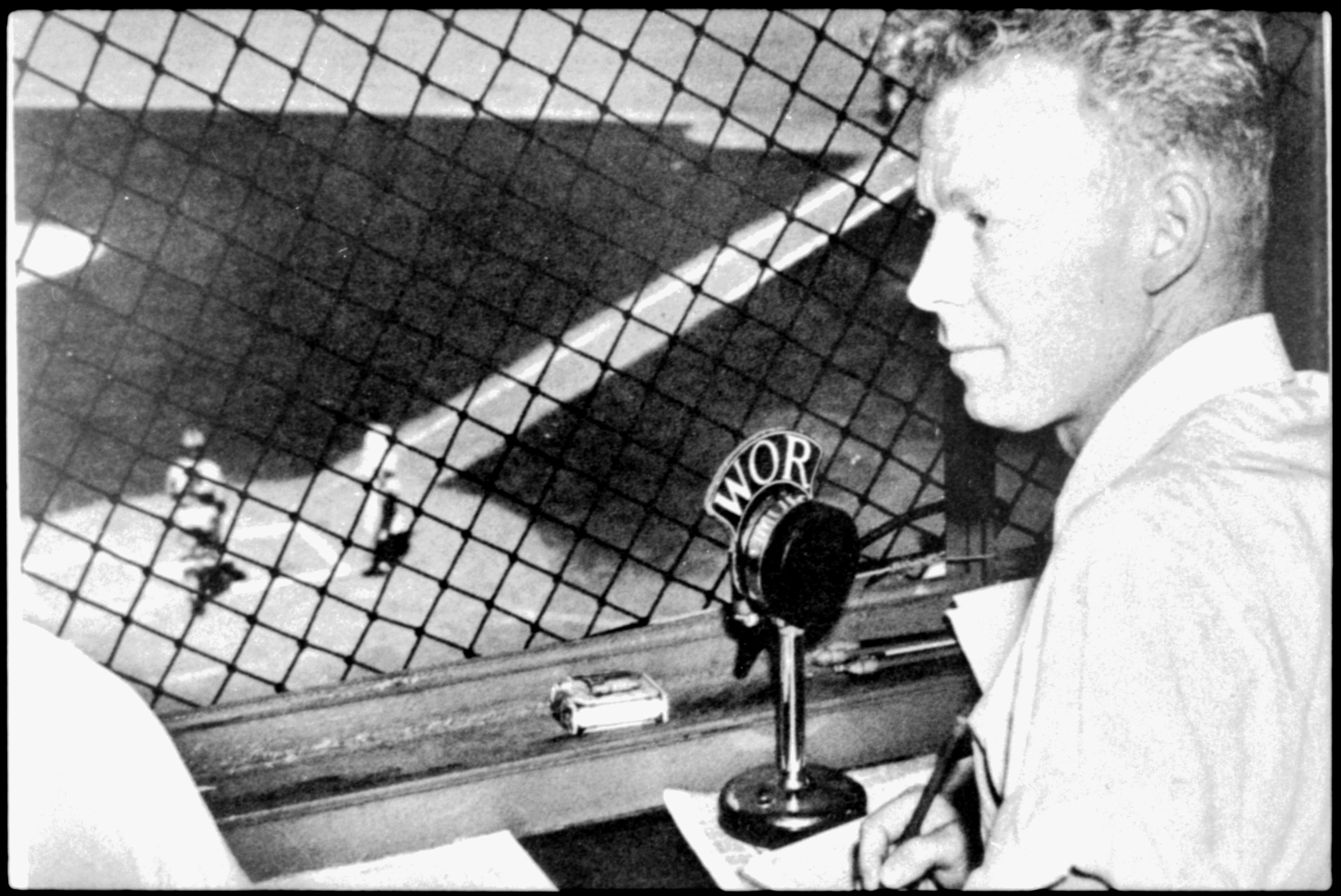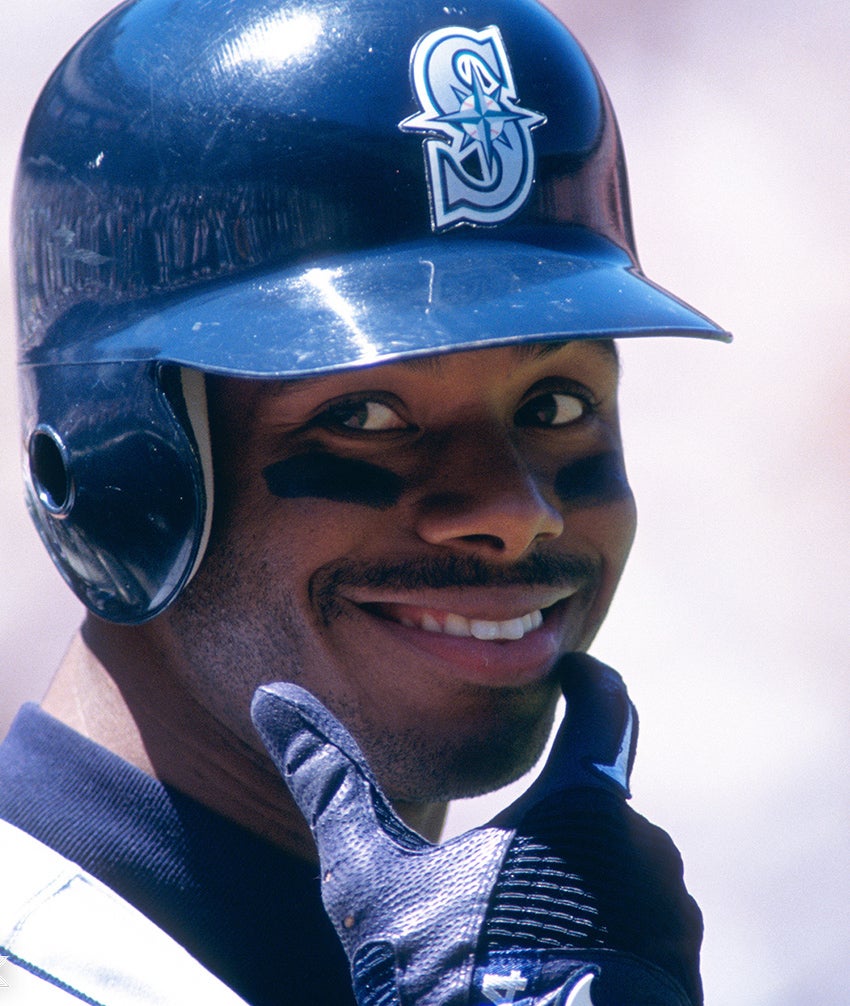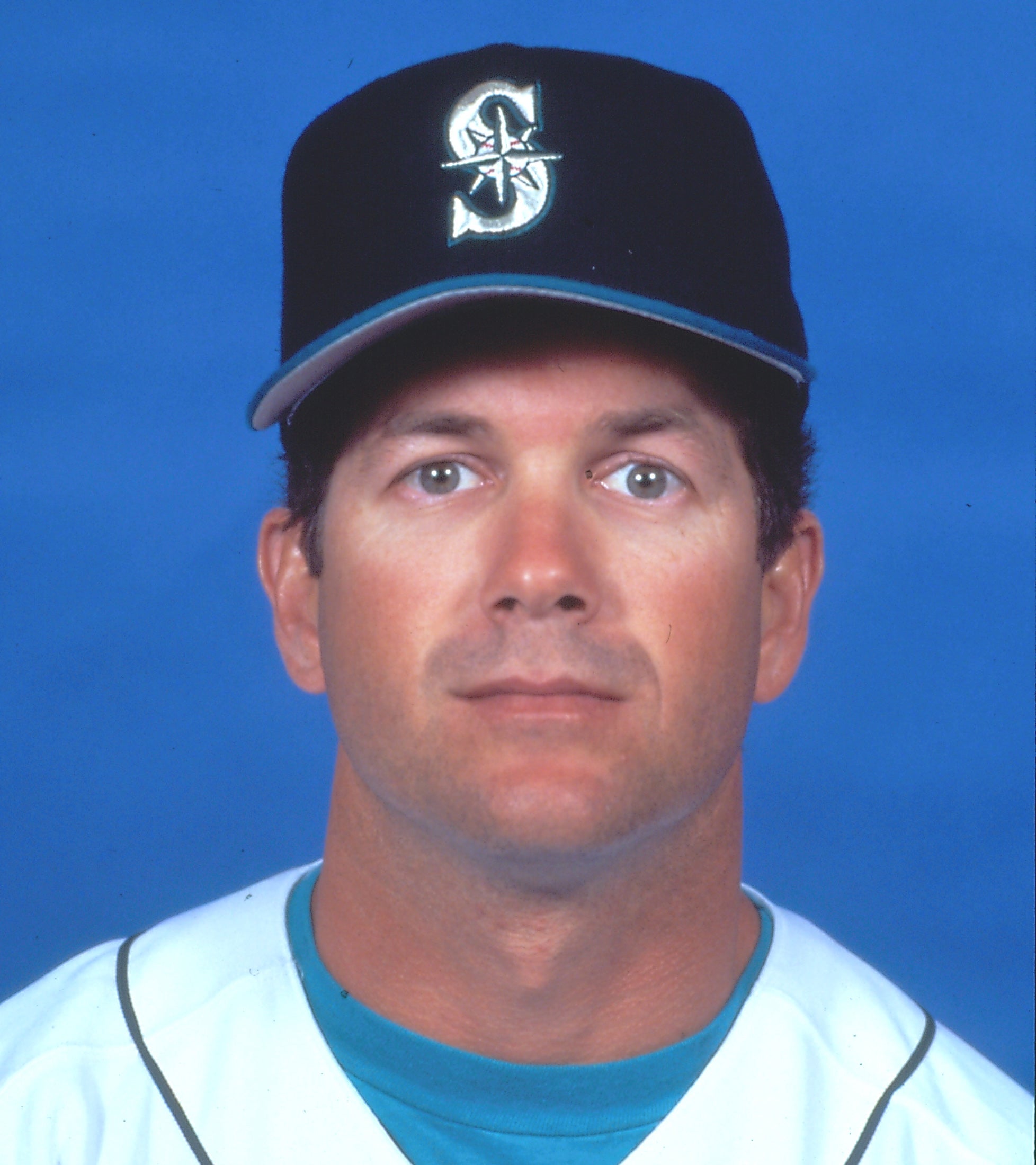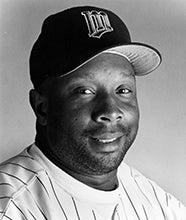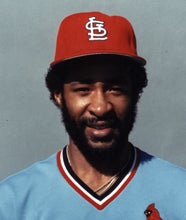- Home
- Our Stories
- Memories from the Mic
Memories from the Mic
It all began with one man speaking into a telephone, recounting the events of a baseball game as it played out in front of him.
At the time, few people could foresee the pivotal role baseball broadcasting would one day play in American culture.
On Aug. 5, 1921, Harold Arlin provided the play-by-play for the first baseball game ever broadcast on the radio. He bought a seat at Pittsburgh’s Forbes Field, converted a telephone to a microphone and broadcast the game on KDKA, America’s first licensed radio station, as the Pirates defeated the Phillies 8-5.
Two months later, on Oct. 5, 1921, Tommy Cowan broadcast the first World Series game between the Giants and Yankees from a studio, with a newspaperman onsite at the Polo Grounds relaying the play-by-play to him via phone.
“It was so successful, there was no World Series broadcast the next year,” Red Barber quipped in his 1978 Ford C. Frick Award acceptance speech.
Official Hall of Fame Merchandise
Hall of Fame Members receive 10% off and FREE standard shipping on all Hall of Fame online store purchases.
Hall of Fame Membership
There is no simpler, and more essential, way to demonstrate your support than to sign on as a Museum Member.
Early on, team owners were skeptical of the viability of radio broadcasting, fearing it would discourage fans from attending games in person. But by 1939, all 16 teams were on the radio, enabling fans to bring their favorite team’s games into their own homes on a regular basis.
The same year, baseball appeared on television for the first time, with the first TV broadcast covering a game between college squads Princeton and Columbia on May 17, 1939. On Aug. 26, 1939, NBC televised a Cincinnati vs. Brooklyn game at Ebbets Field, bringing professional baseball into the world of TV.
As baseball broadcasting took hold in America, so too did the game’s voices. From Barber, to Mel Allen, to Vin Scully, to Harry Caray and so many more, countless broadcasters earned a place in fans’ hearts, as they immortalized the game’s greatest moments.
Now, when we look back on historic events throughout baseball history, we remember them in tandem with the iconic calls that accompanied them: “The Giants win the pennant!” “In a year that has been so improbable, the impossible has happened!” “Touch ‘em all, Joe! You’ll never hit a bigger home run in your life!”
What calls have stood the test of time and continue to be remembered by fans today? We took to social media to find out. Here are some of the fan favorites:
"We'll see you tomorrow night!
Jack Buck was on the call as Kirby Puckett launched a homer to left to deliver a walk-off win for the Minnesota Twins over the Atlanta Braves in Game 6 of the 1991 World Series. The win ensured that the Twins would live to see another day and play in a decisive Game 7 the following night.
Like father like son
Joe Buck narrated David Freese’s epic walk-off homer for the St. Louis Cardinals in Game 6 of the 2011 World Series. The Cardinals were down to their last strike twice in the game against the Texas Rangers, but prevailed nonetheless, forcing a Game 7 the following day, which St. Louis would go on to win. Buck emulated his father Jack in his call of Freese’s homer: “Freese hits it in the air to center…We will see you tomorrow night!”
Twins win the World Series
A day after his memorable call of Puckett’s homer, Jack Buck called Minnesota’s walk-off win in Game 7. With the game still scoreless in the bottom of the 10th, Gene Larkin singled to left center to score Dan Gladden and secure a championship for the Twins.
“The Twins are gonna win the World Series! The Twins have won it!” Buck said.
One home run, from two different perspectives
Kirk Gibson’s home run for the Dodgers in the 1988 World Series is one of the most memorable moments in baseball history. Two legendary broadcasters provided fan favorite calls of the historic homer.
Vin Scully called the homer for the TV broadcast, then paused for over a minute to allow the celebration to unfold before delivering this iconic line: “In a year that has been so improbable, the impossible has happened!”
Meanwhile, Jack Buck was lauded for his call on the radio, as well, capped off by this famous line: “I don’t believe what I just saw!”
“Touch ‘em all, Joe!”
Joe Carter’s walk-off homer to win the 1993 World Series for the Toronto Blue Jays was indisputably one of the most significant home runs ever hit. And broadcaster Tom Cheek did the moment justice with his call.
“Touch ‘em all Joe, you’ll never hit a bigger home run in your life!” Cheek said.
“Go crazy folks, go crazy!”
Jack Buck was on the call when Ozzie Smith lined an improbable walk-off homer for the Cardinals in Game 5 of the 1985 NLCS. It marked the only postseason home run for Smith, who hit 28 career homers in the regular season – but he made this one count.
“Go crazy, folks! Go crazy!” Buck said.
The Shot Heard ‘Round the World
Who could forget the iconic “Shot Heard ‘Round the World?” Bobby Thomson delivered a game-winning homer to give the New York Giants the victory over the Brooklyn Dodgers and secure the 1951 National League pennant for the Giants.
Russ Hodges’ call is ingrained in every baseball fan’s mind: “The Giants win the pennant! The Giants win the pennant! The Giants win the pennant! The Giants win the pennant!”
The Double
Dave Niehaus provided the play-by-play as a couple of future Hall of Famers helped deliver a 6-5 Mariners victory over the Yankees in Game 5 of the 1995 ALDS. Edgar Martinez doubled in the bottom of the 11th inning to score Joey Cora and Ken Griffey Jr. and send Seattle to its first ALCS in franchise history.
Niehaus’ call:
“And the 0–1 pitch on the way to Edgar Martinez; swung on and lined down the left field line for a base hit! Here comes Joey! Here is Junior to third base, they're going to wave him in! The throw to the plate will be...LATE! The Mariners are going to play for the American League Championship! I don't believe it! It just continues! My oh My! Edgar Martinez with a double ripped down the left field line and they are going crazy at the Kingdome!”
The Curse Breakers
For fans in Boston and Chicago, it’d be tough to top the calls that ended their respective 86 and 108-year championship droughts.
Joe Castiglione narrated the Red Sox’ curse-breaking victory over the Cardinals in 2004.
“Swing and a ground ball, stabbed by Foulke. He has it, he underhands to first – and the Boston Red Sox are the world champions! For the first time in 86 years, the Red Sox have won baseball’s world championship! Can you believe it?”
Joe Buck was on the call as the Cubs defeated the Cleveland Indians in Game 7 of the 2016 Fall Classic.
“Here's the 0-1. This is gonna be a tough play, Bryant. The Cubs…win the World Series! Bryant makes the play! It’s over, and the Cubs have finally won it all! 8-7 in 10!”
To continue reliving baseball’s storied past through the eyes of famed broadcasters, order your copy of Curt Smith’s book, Memories from the Microphone: A Century of Baseball Broadcasting, by clicking here.
Janey Murray was the digital content specialist at the National Baseball Hall of Fame and Museum

